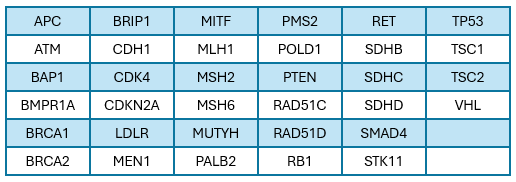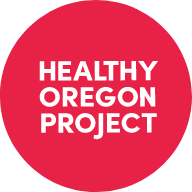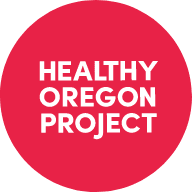FAQ
Frequently Asked Questions
.
About the Healthy Oregon Project
The Healthy Oregon Project, or HOP, seeks to learn about the health of people in and around Oregon. Our goal is to empower groundbreaking research by harnessing real-world data to bridge gaps in disease prevention, diagnosis, and treatment—driving health advancements for all Oregonians and beyond.
HOP offers surveys on health, wellness, and behavior, and other broad health studies. This data is saved in a secure and privacy-protected repository of information that can be used to answer many different questions about health.
HOP aims to build a long-term research partnership with Oregonians in order to:
- Empower participants by providing personalized health information about their risk of cancer and other health conditions
- Create a robust repository of research data and samples to enable scientists to conduct research
- Build a cohort of individuals motivated to participate in health research, to serve as a resource for scientists looking for participants for future research studies
HOP’s first research study aimed to understand the value of providing population-wide inherited genetic cancer risk screening and how screening results can impact how people who are found to be high-risk follow cancer prevention guidelines. The genetic screening part of the study has been paused as of May 2025. The research team is now reporting on the results from the study and will plan to share the findings with participants.
HOP is committed to supporting new research opportunities to increase enrollment of underrepresented groups in cancer and other health research in the effort to make it representative of all Oregonians.
New studies will be available in the near future, which will include a range of topics – stay tuned!
HOP is currently funded by the OHSU Knight Cancer Institute Cancer Early Detection Advanced Research Center (CEDAR). CEDAR is a research institute dedicated to identifying those at risk for cancer, detecting cancers early, and developing treatments that treat those early cancers. HOP also has the support of a growing network of collaborators.
Current collaborators include:
• University of Oregon Center for Science Communications Research
• Providence Cancer Institute
• Kaiser Permanente Center for Health Research
• Oregon Health Authority (OHA)
To participate in HOP, you must be at least 18 years old.
To join HOP, you will need access to a smartphone or computer:
Step 1: Download the Healthy Oregon Project app from the Google Play Store or Apple App Store, or navigate to the ‘Login’ button at the top of the website page.
Step 2: Create a secure account with your email. Then, review and sign the electronic consent form.
Step 3: You can choose to complete any of the available surveys or studies within the “Activities” menu.
No, the HOP app and website are connected, and therefore, your account can be accessed from either platform. Your login information is your email and the password you created when you initially enrolled in the study. Contact information can be updated in your account profile if needed.
HOP is a repository. A research repository collects, stores, and distributes human specimens (samples of blood, tissue, or body fluids like saliva) and/or data for use in IRB Approved: 4/28/2025 future research studies. Storing lots of specimens and data together helps scientists answer research questions without needing to collect new specimens and data.
Your information, survey responses, and samples will be securely stored in a repository and may be shared with other researchers at OHSU and other institutions to answer important scientific questions. HOP only shares data with researchers that meet the OHSU ethics committee requirements.
As of May 2025, the HOP inherited genetic screening was paused. One of the main goals of this part of the study was to assess how inherited cancer risk screenings impacted prevention and early detection. As the study reached an enrollment milestone of 50,000 participants and genetic screening results were shared with thousands of Oregonians, the study has decided to pause the screenings and focus on new research questions related to the health of Oregonians. Surveys and other aspects of HOP will continue and evolve into new participation opportunities.
If you submitted a sample, your data is stored in a secure database. Any leftover samples will be stored in a restricted-access OHSU laboratory. If you consented to allow future use of your survey results or leftover samples, we may share those with studies that have met requirements set by the OHSU Institutional Review Board (IRB) in order to help answer important scientific questions. To review the genetic screening consent form regarding future data use for research, locate your signed form in the ‘More’ tab under ‘Completed Consents’.
HOP is a research repository. A repository is a collection of data and other specimens that can be shared with other researchers to support their research studies. Storing and gathering specimens and data can help conduct future research without re-collecting them repeatedly.
HOP’s Inherited Genetic Cancer Risk Screening paused as of May 2025. Participants who activated and returned their saliva sample by May 31, 2025, can expect to receive results as explained in the consent process.
The genetic screening included the following genes, which are associated with inherited cancer syndromes and increased cardiology risk:

Medical guidelines may change over time as our understanding of genetics evolves. We only report gene changes that have established medical guidelines that could impact your clinical care. The result you are given will be based on the current medical guidelines at the time your report is issued.
If you chose to donate a saliva sample before the genetic screening pause, your sample will be kept at an OHSU clinical laboratory where we extracted your DNA from the mouthwash, sequenced the DNA, and analyzed the results.
Once your sample has been analyzed and you have received a result, any leftover DNA will be stored in a secure data and tissue bank, called a repository. Your sample and your genetic screening results may be used for future research studies.
HOP’s Inherited Genetic Cancer Risk Screening was paused in May 2025. We expect to provide results to participants who activated and returned their saliva sample by May 31, 2025. Participants will be contacted if results are delayed beyond the expected timeline of 4 months.
Negative Results: Your results report will be uploaded to your secure HOP account. You will receive a notification when your results are available to view.
Positive Results: An OHSU genetic counselor will call you to explain your results and provide the recommended medical guidelines for your results, including options for preventive measures that could decrease your risk of developing cancer in the future. This genetic counseling consultation will be provided at no cost to you or your insurance. You will also be contacted one month after you speak with the genetic counselor by the HOP Participant Navigator who will provide resources as needed and assist with any questions you may have after learning your positive result.
All HOP results will be uploaded into your OHSU medical record. If you do not have an OHSU medical record, one will be created for you when you submit your saliva sample. This is a requirement for medical testing.
We will not share your results with your insurance provider, but they may be able to access your results in your medical record. A federal law called GINA (Genetic Information Nondiscrimination Act) prevents insurance companies from discriminating against you (for example, by raising your rates) based on your genetic screening results. However, disability insurance and life insurance companies are not covered by GINA. They may require copies of your medical records to approve a new policy.
No. Genetic screening is protected by GINA, the Genetic Information Nondiscrimination Act. Under GINA, predictive genetic test results cannot be considered a pre-existing condition.
HOP Genetic Screening results were entered into your OHSU medical record if you participated before the pause. If you do not have an OHSU medical record, one was created for you when you submitted your saliva sample. This is a requirement for the clinical lab to analyze your sample. This medical record will not affect your primary record if you are a patient at a different health system. The record created at OHSU for genetic screening will only be used to document your results and, if positive, your genetic counseling conversation. You can request to share the OHSU medical record with your primary health system, but the HOP team cannot do this on your behalf. The OHSU medical record can be accessed by healthcare providers within the OHSU health system.
Yes, participants with a personal cancer history are welcome to participate in HOP. There may be different eligibility criteria for each study that is part of HOP, but participants will be informed of requirements before consenting to join.
HOP’s first research study aimed to understand the value of providing public-wide inherited genetic cancer risk screening for high-risk cancer types to understand how people who are found to be high-risk follow cancer prevention guidelines. The genetic screening part of the study has been paused as of May 2025.
If you received results from HOP’s genetic screening, those will only tell you if you have an inherited mutation in genes that could increase your risk of developing cancer in the future. Having a mutation does not mean you have or will develop cancer.






